i-DE, Iberdrola España's distribution company, promotes conferences to highlight its firm commitment to electrification as the only way to grow in energy autonomy and competitiveness in the country
- The company manages more than 70,000 kilometers of power lines in the Valencian Community, more than 50,000 in Castilla y León and more than 30,000 in the Region of Murcia

i-DE, Iberdrola España's distribution company, reaffirmed its commitment to the energy transition and the economy’s decarbonisation, focusing on electrification as the only way to grow in energy independence and competitiveness, during its 21st Grids business meeting in Castilla y León, Region of Murcia, Valencian Community, Basque Country, La Rioja and Navarra
At these meetings, which have been attended by more than a hundred employees of the company in different regions, the importance of the economy’s electrification was stressed as a strategy for sustainability and efficiency based on the use of electricity instead of fossil fuels, which will lead to a reduction in emissions, ‘greater energy efficiency and savings for homes and businesses’.
These meetings have been attended by the director of i-DE in Castilla y León, Óscar Villanueva; the director of i-DE in the Region of Murcia and in the Valencian Community, Guillermo Raga; the director of i-DE in the Northern Region, Javier Arriola, and the heads of the Grid business in several provinces, who have urged to further their efforts to ensure people's safety to minimise electrical risk and guarantee protection, as well as care for the environment.
The director of i-DE in the Region of Murcia and in the Valencian Community, Guillermo Raga, stressed that “it is necessary to invest in networks, which are key to the development of the electrification of the economy, and to be able to provide new supplies. Distribution companies are prepared to invest, as we have the technology, the people, the talent and the capacity to carry it out". In this sense, Javier Arriola, director of i-DE in the Northern Region, added that, "it is vital that regulators recognize this need and create the conditions for this to happen”.
The director of i-DE in the Western region, Óscar Villanueva, highlighted Iberdrola España’s commitment to electrification to support the energy transition and the economy’s decarbonisation with a focus on innovation and sustainability. Our goal, he said, is to provide a supply grid that makes this electrification possible, allowing the facilities of our customers, people or ,companies to connect to our grid and to move towards a more sustainable, competitive and resilient economy.
I-DE reminded that it is working ‘to guarantee a modern, safe and secure electricity grid that is ready for new energy demand’. Our commitment to electrification translates into advanced infrastructure with the implementation of smart grids and digital meters that optimise consumption. We also collaborate with companies and governments by supporting initiatives that promote sustainability and energy efficiency and by facilitating self-consumption and the connection of renewable facilities to our grid to promote distributed generation.
These meetings have concluded that electrifying consumption is an effective solution for building a more sustainable future. The commitment to electricity as the main source of energy is a commitment to efficiency, cost reduction and an improved quality of life. Furthermore, they discussed the operational experience of employees who collaborated at the end of the year with the initial restoration of the electricity supply after the cold drop that occurred in Valencia, as well as the il-lumina plan, under which Iberdrola España will invest 100 million euros to redesign the electricity grid and include the latest digitalization standards to benefit more than 650,000 customers in the area.
Find out how Iberdrola España's distribution company is promoting electrification in these autonomous communities:
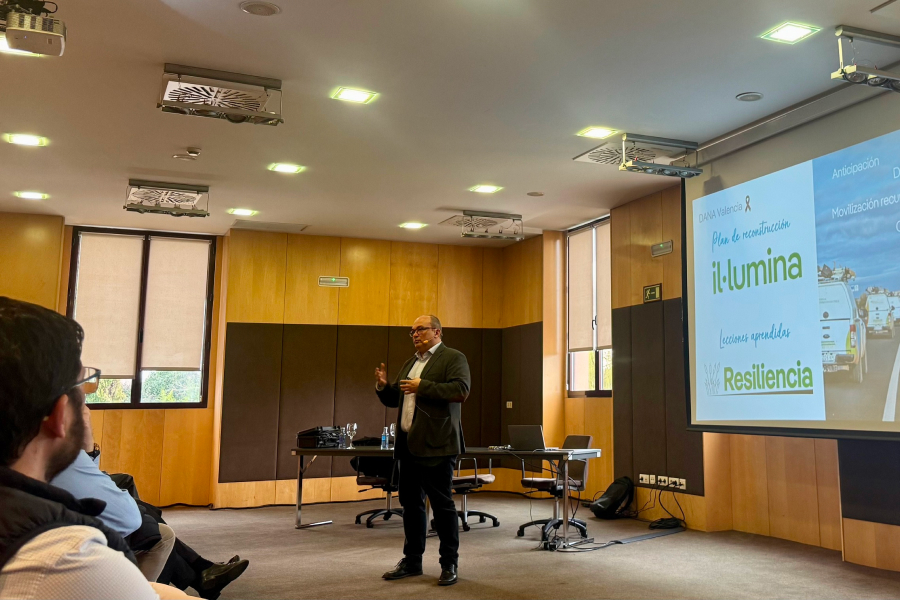
In recent years, the company has undertaken an ambitious plan to digitize its electricity grids, converting its more than 1.5 million meters in the region and the infrastructure that supports them into smart meters, incorporating remote management, supervision and automation capabilities.
The digitization of the electricity distribution grid will enable more information to implement additional energy efficiency and sustainability measures, in a way that is committed to ambitious and urgent climate action. The deployment of the smart grid will make it possible to respond to new models of grid use and offer a better service to citizens.
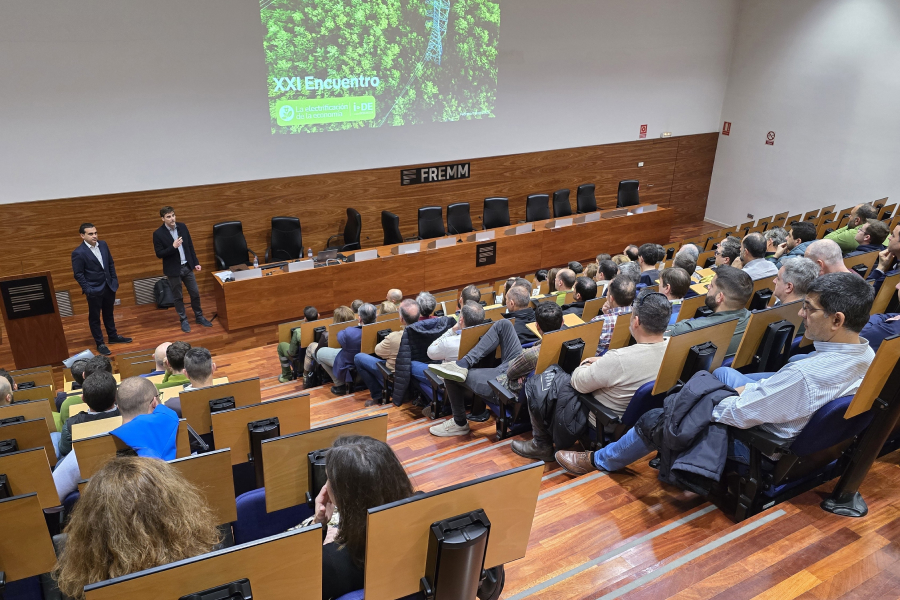
In the Region of Murcia, i-DE manages more than 30,000 km of power lines, has 9,700 transformer stations in service and more than 70 substations. The company maintains an optimum level of service quality in the region for both private and business customers.
The company is always working to improve infrastructures and is carrying out an ambitious plan to digitalize the networks, which allows automated processes that improve the quality of the service provided. It is also working on the adaptation of overhead lines for the care and protection of birdlife.
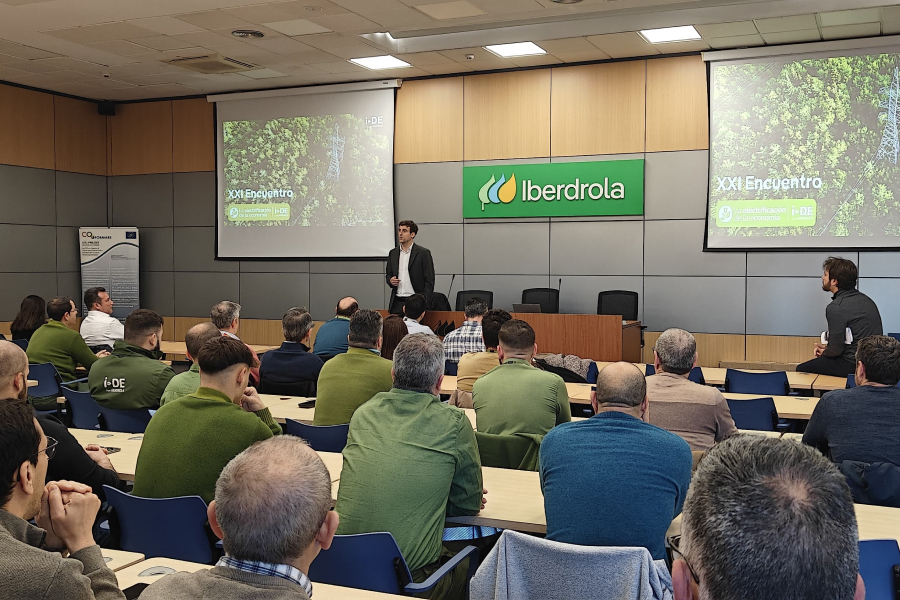
In this sense, the company is carrying out an ambitious plan to digitalize the networks to automate processes that will improve the quality of the service provided. In addition, the company continues to work on the adaptation of overhead lines for the care and protection of birdlife.
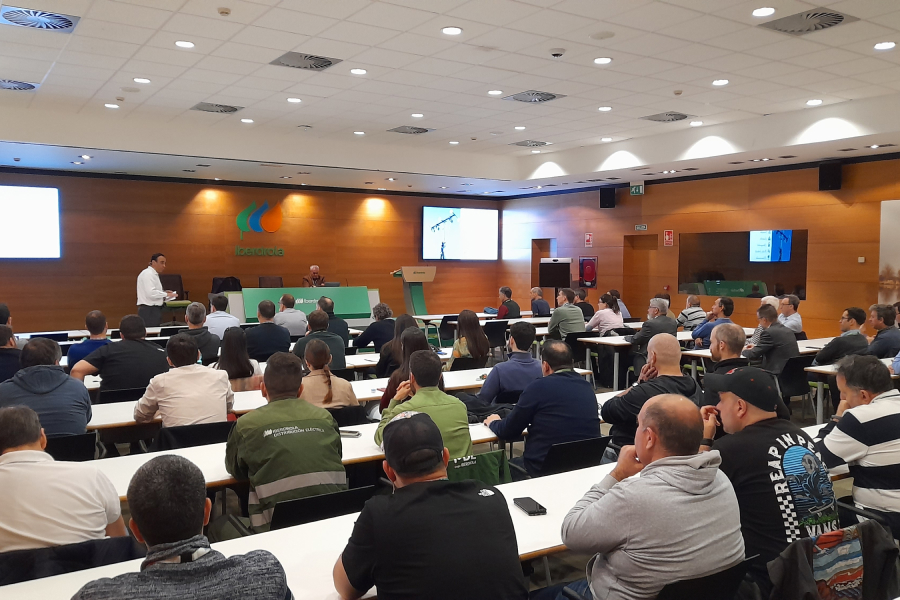
In the Basque Country, i-DE manages more than 23,000 km of power lines, has 11,916 transformer stations in service and 165 substations. The company maintains an optimum level of service quality in the Basque Autonomous Community for both private and business customers.
In addition, the company is carrying out an ambitious plan to digitalize the networks, which allows automated processes that improve the quality of the service provided. On the other hand, it continues to work on the adaptation of overhead lines for the care and protection of birdlife.
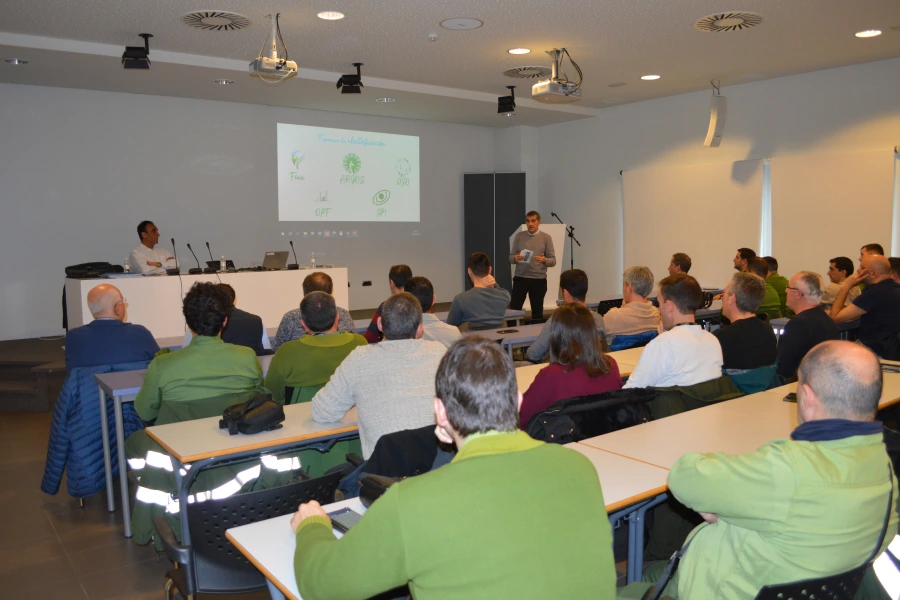
In La Rioja, i-DE manages more than 5,150 km of power lines, has 2,542 transformer stations in service and 40 substations. The company maintains an optimum level of service quality in the region for both private and business customers.
The company is carrying out an ambitious plan to digitalize the networks, which allows automated processes that improve the quality of the service provided. It also continues to work on the adaptation of overhead lines for the care and protection of birdlife.
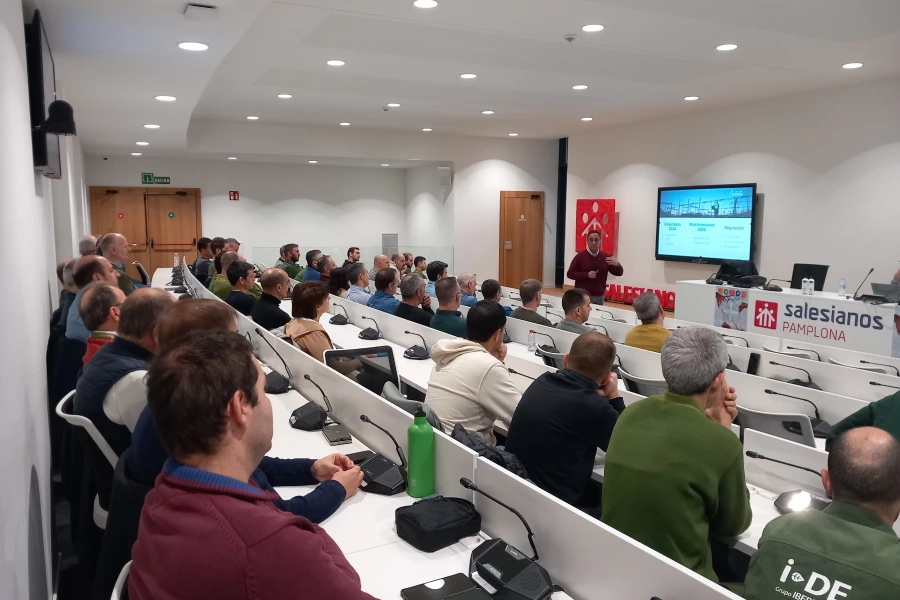
In Navarra, i-DE manages more than 9,940 km of power lines, has 3,648 transformer stations in service and 87 substations. The company maintains an optimum level of service quality for both private and business customers in the region.
The company is carrying out an ambitious plan to digitalize the networks, which allows automated processes that improve the quality of the service provided. It also continues to work on the adaptation of overhead lines for the care and protection of birdlife.
